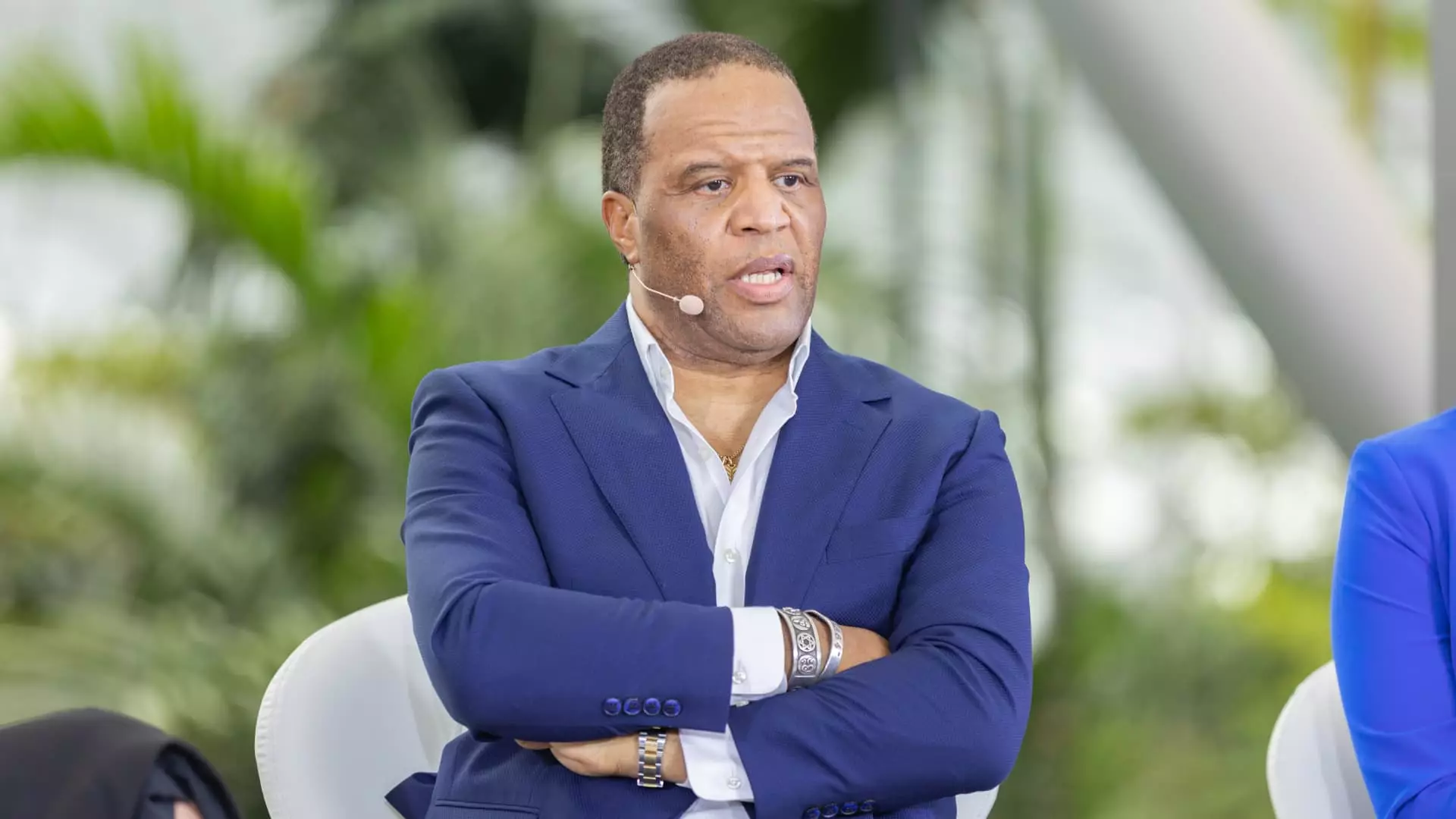In the grand narrative of technological progress, artificial intelligence (AI) stands as both a beacon of potential and a harbinger of disruption. As we furiously march toward an increasingly automated future, industries that once thrived on human interaction and labor are rapidly evolving or disappearing altogether. John Hope Bryant, the CEO of Operation HOPE, emphasizes a crucial point: those most vulnerable, especially individuals “at the bottom of the pyramid,” are genuinely at risk of being lost in this transition. Their plight encapsulates a widening socio-economic divide that, if not addressed, could foster resentment and instability.
Bryant’s warnings should serve as a pivotal wake-up call for policy-makers and corporate leaders alike. Current trends indicate that roles ranging from grocery store clerks to convenience store attendants could soon vanish. This scenario isn’t an exaggerated forecast but a pressing reality that society is already grappling with. When policymakers remain oblivious to the practicality of job loss, they risk perpetuating an era where opportunity is reserved for the elite, while the majority languish in economic limbo.
A Decisive Shift: The Need for Upskilling
Upskilling the working and middle classes, as Bryant suggests, is not just a matter of ethical responsibility but an economic imperative. If we, as a society, participate in the proactive reskilling of our workforce, we can avert a scenario where the ramifications of AI extend beyond unemployment into pervasive social unrest. Bryant passionately argues that without deliberate investment in education and skill development, the consequences will be dire—a stark warning against complacency.
The notion of investing in individuals’ capabilities brings a much-needed narrative shift. Elevating the skills of those with a high school education or limited connections to foster adaptability in rapidly changing job markets could translate into substantial gains in the economy. Bryant’s vision for the future is uplifting: nurturing untapped human potential to enhance not just individual lives but overall national prosperity.
Rethinking Economic Strategies
The U.S. economy is at an inflection point, contending with more than $36.2 trillion in national debt. Traditional approaches predominantly revolve around austerity—cutting services and scaling back public spending. However, Bryant advises against this narrow vision, arguing that we should instead focus on growth—an audacious but necessary proposal. Why shouldn’t we invest in those eager to succeed?
Encouraging companies to adopt apprentice programs can both reduce unemployment and stimulate the economy. When corporations embrace their social responsibility and engage in job training, they cultivate customer loyalty and community trust while tapping into a pre-existing talent pool. The marrying of profit motives with moral imperatives could organically fuel innovation.
Financial Literacy: A Vital Component
Central to this vision is an urgent requirement for educational reforms that emphasize financial literacy and entrepreneurship. Current curricula are woefully inadequate in preparing young Americans for a world intricately intertwined with technology and finance. Integrating real-world skills into our educational systems can foster resilience in the face of AI-induced disruptions.
Bryant’s concerns about wealth concentration exacerbate this issue. When we allow money to create more wealth independently of labor, we start a vicious cycle of inequality. The rich get richer, while opportunities slip away from the public sphere. Such disparities not only hurt the individuals disenfranchised by this system but also hinder societal progress as a whole.
Society’s Integrity at Stake
The stakes are particularly high. We run the risk of neglecting a significant part of our population, which could lead to a fracturing society—a volatile situation where discontent grows and manifests in various destructive forms. The failure to uplift the working classes through appropriate measures—policies that are proactive rather than reactive—could spark profound and disruptive changes in the socio-political landscape.
The narrative Bryant constructs is not merely an economic plea; it is a clarion call for inclusive progress. The potential fallout from a disregard for marginalized voices could be disastrous. In an era where noise and friction in markets create volatility, the imperative to unify and uplift is stronger than ever before.
In a country founded on the principles of opportunities for all, it’s time to reevaluate how we invest not only our resources but also our collective future. While the technological revolution is inevitable, how we navigate this transformation will define our society for generations to come.

